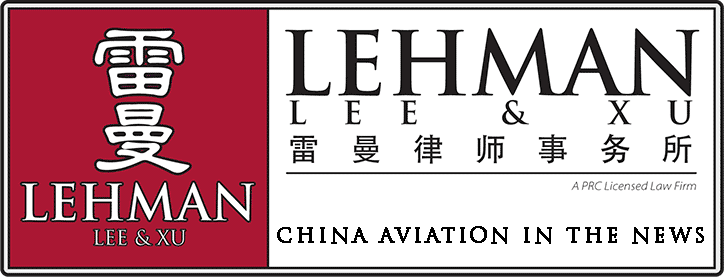Beijing has published a draft climate change law that includes warnings of ¡°retaliatory approaches¡± as a response to Brussels¡¯ firm stand on including aviation emissions in the EU Emissions Trading Scheme (ETS). The draft was published in mid-March, and was under public consultation until end-April.
The draft makes direct reference to the accusation that the aviation scheme could motivated by factors in addition to reducing emissions.
¡°China objects to other countries and areas using climate change as an excuse to conduct protectionism in trade, or unilaterally levying carbon taxes or similar taxes on Chinese airlines, ships, etc.,¡± the draft states.
If this law passes, Chinese emissions standards will be applied across sectors such as power generation, iron and steel, construction, and oil and gas sectors, according to Point Carbon which has published an analysis of the draft. This will constitute a double burden to carbon-intensive industries globally because Chinese emissions standards will be imposed on top of the EU ETS standards.
Point Carbon¡¯s Hongliang Chai says the effectiveness of the law will depend on the details of key issues such as benchmarking and allowance allocation of the national ETS, and the level of penalty for non-compliance. Chai, however, pans the proposed penalties in the current draft - a one-off fine in the range of €3,600-€24,000 - as ¡°nothing more than pennies for large emitters in China.¡±
The drafting of China¡¯s Climate Change Law is situated in a broader wave of international and corporate opposition to the inclusion of aviation emissions in EU ETS. In February, 23 countries including China, Russia, and Japan signed the Moscow joint declaration, which claims that the aviation scheme could spark a ¡°trade war.¡± In the joint declaration, the 23 countries declared intention to contravene the ETS.
However, even as the pressure against the EU Commission ramps-up, Brussels has maintained that aviation emissions will stay in the emissions scheme. Isaac Valero-Ladr¨®n, the spokesman for the European Climate Commission in February said that the debate is ¡°not about trade wars at all.¡± In another statement, he said opposition groups are labelling the issue as a trade war only to create pressure to see if the EU will ¡°cave.¡±
China recently announced a new national plan to cut aviation emissions, which it says would make Chinese airlines exempted. The EU ETS does not require countries with ¡°equivalent measures¡± to participate in the scheme. It is not clear how, if at all, the draft law will factor into the national plan. EU Climate Commissioner Connie Hedegaard says the bloc¡¯s delegation in Beijing is looking into the plan.
Web link: http://ictsd.org/i/news/biores/133382/

